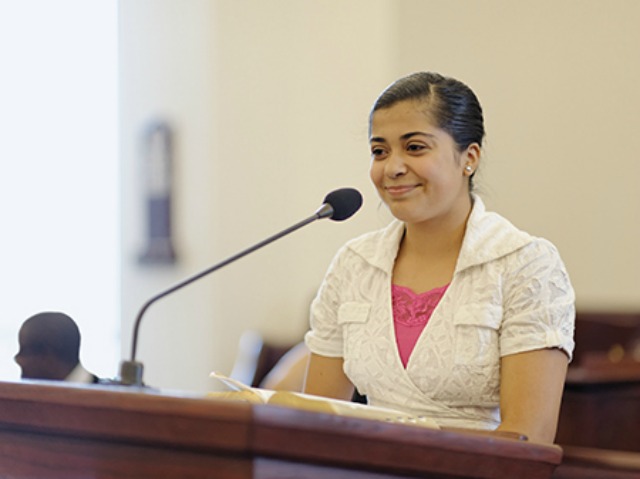Question
Gramps,
Just saw your page…I appreciate the views expressed and thought of a question: If I were to ask my bishop to review the contents of my “official church record” – what type of answer could I expect? I am asking as during Christmas I spoke to a friend of mine who had been excommunicated over 20 years ago and has still not had his temple benefits restored as he was asked to sign a document indicating, more or less, a confession of wrong doing….he wouldn’t do it….made me wonder the purpose.
Kevin
Answer
Hello Kevin,
Thank you for your questions. I’ll try to touch on two points:
Question 1: Viewing official church records
Question 2: Signed “confession”
Viewing Official Church Records
Let’s start with, “If I were to ask my bishop to review the contents of my “official church record” – what type of answer could I expect?”.
You should expect that your Bishop, as instructed, will respectfully decline such a request. Church leaders receive instructions and training regarding ‘confidentiality’ of records. Part of that training states:
Membership records are confidential. Church membership records should not be shown or given to members. Only the following people should have access to a member’s record:
Bishopric members
The ward clerk
Assistant clerks
Membership records have two tiers. The lower tier, less sensitive, is visible to the Bishop, ward clerk and assistant clerk. The upper tier, more sensitive information – such as annotations, is only visible to the Bishop at the ward level and not the clerks.
While membership records are not disseminated to the general membership, a member can instead request their Individual Ordinance Summary (IOS) if they wish. IOS reports, for the most part, contain the same information as the membership record minus any confidential annotations. For the overwhelming majority of members, their actual membership record is rather routine, boring and lackluster.
Admittedly, some members might unnecessarily ‘imagine’ that their official membership record contains juicy details, dark secrets or otherwise top secret information. These types of worried concerns typically stem from either misinformation, personal guilt or the taunting of the adversary.
Confidential annotations on membership records were discussed further in a prior AskGramps answer:
Does my past stay on my church records and disqualify me for future callings?
Signed “Confession”
Anytime a story is related to you, please bear in mind, there are at least two sides to a story. If someone has been involved in a Church disciplinary proceeding and they decide to share their experience, remember you are only ever hearing one side of the story. The Church adheres to following standard:
All Church discipline is carried out in complete confidence. Church leaders have a solemn responsibility to keep confidential all information they receive in confessions and interviews. To protect that confidence, the Church will not discuss the proceedings of a disciplinary council. A confidential record of the proceedings is kept by a clerk, but even if an individual decides to publicly share information about the process and seeks to position that process in their own light, the Church will be circumspect in any public statement. In rare cases, the decision of a disciplinary council may be shared publicly to prevent others from being harmed through misinformation.
In order to have prior temple and priesthood blessings restored, an application must be submitted to the First Presidency. That application does require input from the previously excommunicated member. A person should expect to share a written letter basically describing, in their own words, the 1. repentance process 2. change of heart they have experienced and 3. how they feel now. If an individual is unwilling to do their part, then they themselves have limited their own progression, no one else. Unlike an in-person verbal visit with someone local, this application needs to be mailed off to the First Presidency, so it is in writing. To describe this letter as a ‘written confession’ is not only misleading but belittles the sacredness of the repentance process. The First Presidency already knows, from the original disciplinary council, what sin(s) was confessed to. This letter is to demonstrate how you have changed, grown and let the atonement work in your life. I would suggest that an unwillingness to write this letter perhaps demonstrates the exact opposite.
While we will never know for certain what was or wasn’t actually said to your friend, rest assured that the Lord waits for his return. Elder M. Russell Ballard in a talk entitled, A Chance to Start Over: Church Disciplinary Councils and the Restoration of Blessings said the following:
To you who have not yet returned, who may still be struggling with the hurt and haven’t yet felt the healing: please allow yourself to feel the love that the Lord, his
presiding authorities, and your friends in the Church feel for you. We are aware of your pain, and we pray for your healing and your return.
As the First Presidency has said, “We are confident that many have longed to return, but have felt awkward about doing so. We assure you that you will find open arms to receive you and willing hands to assist you. …
“We know there are many who carry heavy burdens of guilt and bitterness. To such we say, ‘Set them aside and give heed to the words of the Savior: “Come unto me, all ye that labour and are heavy laden, and I will give you rest.
“‘“Take my yoke upon you, and learn of me; for I am meek and lowly in heart: and ye shall find rest unto your souls.
“‘“For my yoke is easy, and my burden is light.” (Matt. 11:28–30.)’
“We plead with you. We pray for you. We invite and welcome you with love and appreciation.”
Part of returning involves an actual change of heart and willingness to submit your will to that of the Lord’s. If after 20 years, your friend has not been rebaptized or followed through with a restoration of blessings, that is unfortunately a path he has voluntarily and unnecessarily followed. If your friend reaches the point where he wants to return to full fellowship in the Church once more, I encourage you to invite him to visit with his new Bishop, doing so with fresh eyes, ears and a heart open to the Spirit of repentance.
You are in his care Kevin.
Gramps







